Sir Isaac Newton
Philosophiae Naturalis Principia Mathematica
Author’s Preface to Reader (translation
by Andrew Motte, 1729)
Definitiones (this page)
Characteristics of Newton’s Latin:
Philosophiae Naturalis Principia Mathematica
Title Page (3rd edition, 1726)
Notes: (see also Characteristics of Newton’s Latin)
Philosophiae Naturalis:
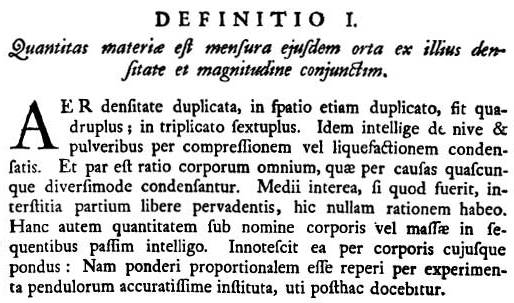
Notes:
Definitio I:
I.: (ordinal) prima. For the period, see Characteristics of Newton’s Latin.
orta: < orior, oriri, ortus sum arise
conjunctim (adverb; *note –(t)im suffix): together, jointly (i.e. multiplied together)

line 3 *summa, -ae: sum
line 4 duplo: by two, doubly (adverbial ablative degree of difference)
duplus est
[motus]: duplus, -a, -um (adjective)
duplā: What does this modify?
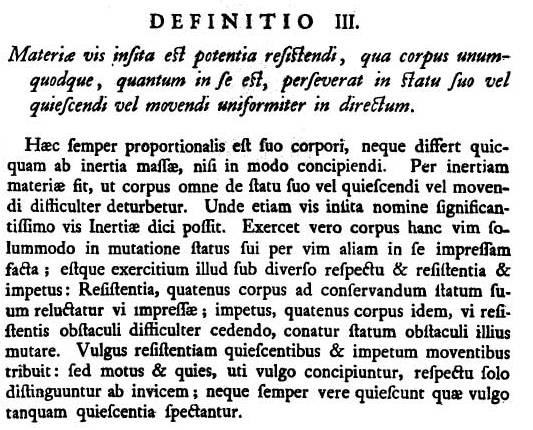
line 2: vis insita: innate force (vs. vis impressa): The phrase was old (Horace, Cicero, Kepler, etc.). but Newton was redefining it.
3 quantum in se est: as much as in it lies; as much as possible (cf. Magna Carta; Descartes)
3-4 vel . . . vel
uniform-iter: What part of speech?
5 Haec: = vis insita
5-6 quicquam: adverbial
9-10 solummodo: (adv.) only [L&S s.v. solus, adv. A2]
11 factā
est: linking verb (not there is; see "Characteristics").
11-12 & resistentia & impetus both . . . and (does not connect these with respectu)
13 vi: dative (with cedendo)
14 obstaculum, -i, nt.: obstacle, hindrance [L & S]
17 ab invicem: from each other
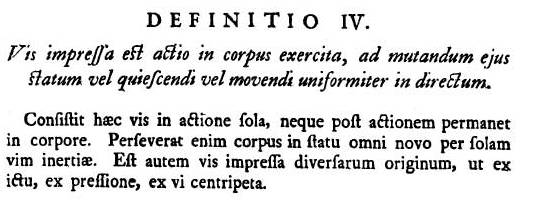
exercita: exerted
line 6 vi centripeta: see Definitio V (next)
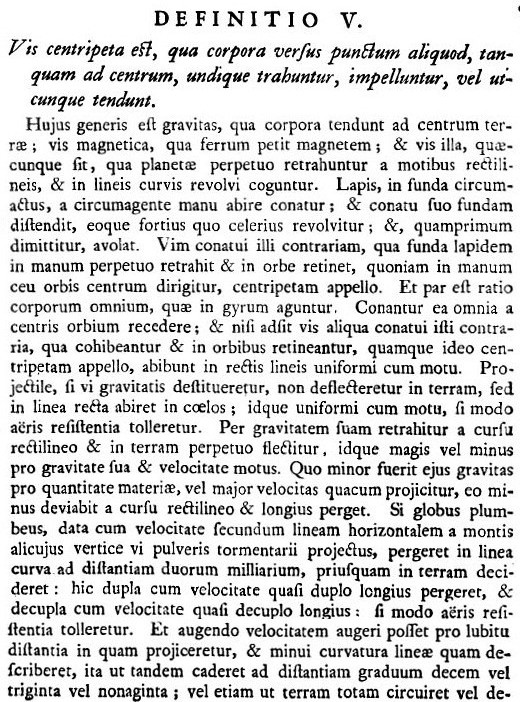
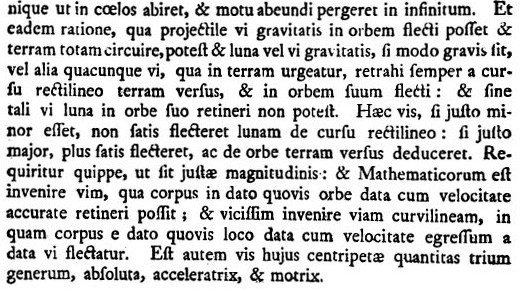
line 1 versus: (preposition + acc.) towards
punctum: point
2-3 utcumque: in some way
7 funda: sling
9 eo-que . . . quo: correlative (the more . . . the more)
13 gyrum: circle, ring
Note: Newton says there are three kinds of quantities of centripital force: absoluta (Definitio VI), acceleratrix (Definitio VII), and motrix (Definitio VIII).
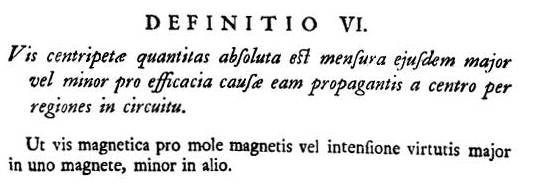
quantitas absoluta: absolute quantity
maior vel minor: i.e. proportional
magnes, magnetis, m. magnet, loadstone [L&S]
intensione: intensity
virtutis: force
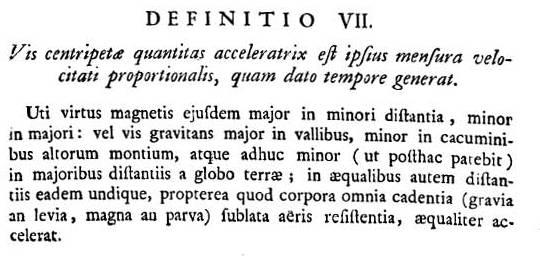
Notes:
quantitas acceleratrix (-trix adj. suffix): accelerative quanitity
eadem [vis]
propterea quod [propterea sets up "quod" because; cf. eo quod]
for the reason that; because
sublata aeris resistentia: ablative absolute
sublata (< tollo): taken away
resistentia: noun (not participle): resistence
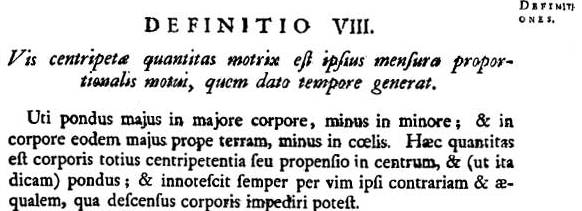
Definitio VIII. (1st paragraph)
quantitas motrix: motive quantity
uti: variant form of the conjunction "ut" (here: as)
Axiomata sive Leges Motus (text and notes)
Liber Primus: De Motu Corporum [without resistence]
Liber Secundus: De Motu Corporum
[with resistence]
Liber Tertius: De Mundi Systemate
Preface (translation by Andrew Motte)
Regulae Philosophandi (text and notes)
Phaenomena.
Propositiones.
(Tides: (text and notes)